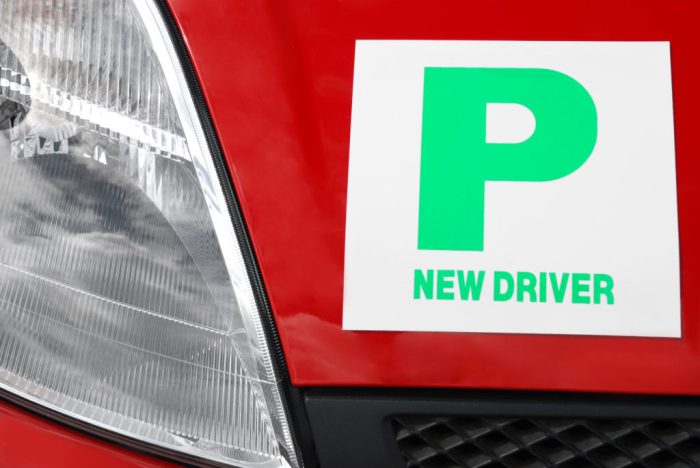Navigating the world of auto insurance as a new driver can feel overwhelming. The sheer number of companies, policies, and confusing jargon can leave even the most organized individual feeling lost. This guide aims to simplify the process, providing you with the knowledge and tools necessary to find the best auto insurance policy to fit your needs and budget, ensuring a smooth and safe start to your driving journey.
From understanding the factors influencing your premiums – age, driving history, car type, and location – to selecting the right coverage levels and negotiating favorable rates, we’ll cover everything you need to know. We’ll also delve into safe driving practices and how maintaining a clean driving record can significantly impact your insurance costs over time. By the end of this guide, you’ll be equipped to make informed decisions and secure the best possible auto insurance for your unique circumstances.
Tips for Safe Driving and Maintaining a Good Driving Record

Safe driving practices and a clean driving record are crucial for new drivers. Maintaining a good driving record not only keeps you safe on the road but also significantly impacts your car insurance premiums. By adopting defensive driving techniques and consistently exhibiting responsible behavior, you can minimize risks and save money in the long run.
Defensive Driving Techniques
Defensive driving involves anticipating potential hazards and taking proactive steps to avoid accidents. This goes beyond simply following traffic laws; it’s about constantly scanning your surroundings and being prepared for unexpected actions from other drivers or pedestrians. Key aspects include maintaining a safe following distance (at least three seconds), avoiding distractions like cell phones, and being aware of blind spots. Always signal your intentions clearly and be extra cautious at intersections and in adverse weather conditions. Practicing these techniques significantly reduces the likelihood of collisions.
Importance of a Clean Driving Record
A clean driving record is a testament to your responsible driving habits. Insurance companies view it as a strong indicator of your risk profile. A driver with no accidents or violations is statistically less likely to be involved in future incidents. This translates to lower insurance premiums, as insurers assess risk based on historical data. Maintaining a clean record demonstrates your commitment to safe driving and rewards you with lower costs.
Consequences of Traffic Violations and Accidents
Traffic violations and accidents have a direct and often significant impact on insurance rates. Even minor infractions like speeding tickets can lead to increased premiums. More serious offenses, such as driving under the influence (DUI) or causing an accident resulting in injuries or property damage, can result in dramatically higher premiums or even policy cancellation. The severity of the violation and the frequency of incidents directly influence the extent of the premium increase. For example, a single speeding ticket might result in a 10-20% increase, while a DUI could lead to a much larger increase or even policy non-renewal.
Resources for Driver Education and Safety Courses
Many organizations offer driver education and safety courses designed to enhance driving skills and promote safer driving habits. These courses often cover advanced driving techniques, hazard recognition, and defensive driving strategies. Local driving schools, community colleges, and even some insurance companies provide such courses. Completing these courses can demonstrate your commitment to safety and may even lead to discounts on your insurance premiums. Some insurance providers offer discounts for completing approved defensive driving courses.
Responsible Driving Habits and Lower Premiums
Responsible driving habits directly translate into lower insurance premiums over time. By consistently avoiding accidents and traffic violations, you demonstrate a low-risk profile to insurance companies. This positive driving history results in lower premiums, saving you money in the long run. The cumulative effect of safe driving is significant; maintaining a clean record for several years can lead to substantial savings compared to drivers with a history of accidents or violations. For example, a driver with a spotless record for five years might qualify for a significant discount compared to a driver with several accidents or violations on their record.
Wrap-Up

Securing the right auto insurance as a new driver is a crucial step towards responsible and safe driving. By carefully considering the factors discussed – from your driving history and vehicle choice to the specific coverage options available – you can confidently choose a policy that offers comprehensive protection without breaking the bank. Remember, proactive driving habits and a clean driving record will further contribute to lower premiums in the long run. Armed with the knowledge in this guide, you’re well-prepared to navigate the insurance landscape and enjoy the freedom of the open road with peace of mind.
Quick FAQs
What is a deductible?
A deductible is the amount you pay out-of-pocket before your insurance coverage kicks in after an accident.
How often can I change my insurance policy?
You can typically change your policy whenever you want, though there might be penalties depending on your contract. Contact your insurer to understand the terms.
Can I get insurance if I have a learner’s permit?
Some insurers offer limited coverage for drivers with learner’s permits, but full coverage is usually only available with a full driver’s license.
What is uninsured/underinsured motorist coverage?
This coverage protects you if you’re involved in an accident with an uninsured or underinsured driver. It helps cover your medical bills and vehicle repairs.